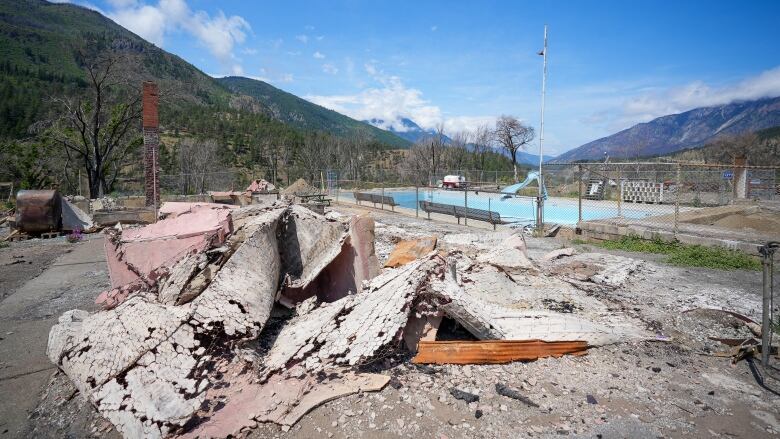B.C. Supreme Court rejects class action lawsuit over Lytton fire damages
Surviving plaintiff will be allowed to amend pleading; lawyer suggests they plan to

A B.C. Supreme Court judge has refused to certify a class action lawsuit originally filed by two residents of Lytton, B.C., against two Canadian rail companies, who the plaintiffs alleged wereresponsible for a wildfire that destroyed the villagein 2021.
Chief Jordan Spinks and Chris O'Connor claimed the fire could have been prevented and sought financial compensation from CP Rail, CN Rail and the attorney general of Canada, among others.
Spinks, of the Kanaka Bar Indian Band, has since become the only remaining plaintiff in the claim followingO'Connor's death.
In his ruling, Chief Justice Christopher Hinkson saidthe claims didn't meet the criteria to be certified as a class action suit.
"The pleadings relating to negligence are overly broad and they do not adequately guide the defendants, or the Court, as to what is at issue or what the case against each defendant is," Hinkson said in his judgment.
He also said the plaintiffcanamend their pleadings.
The plaintiff's lawyer, Anthony Vecchio, released a statement Thursday suggesting they intend to do so.
"We respect the Court's ruling and appreciate the opportunity to amend our pleadings," he said.
"We remain confident that a class action is still the best avenue to represent the interests of the affected individuals."
Hinkson also said there was no evidence to support the claim that the defendants were responsible for starting the fire.
"Beyond the assertion that several trains passed through Lytton on the day the wildfire started, and that there was some vegetation adjacent to the tracks, there are no facts alleged as to how any of CPR's or CNR's trains, railways, or employees caused the wildfire," he said.
"In particular, I find that there are no clear material facts alleged as to how the defendants allegedly caused the wildfire."
The chief justice also ruled loss claims were ambiguous, writing, "the same broad material facts are alleged on behalf of all of the class members despite the fact that they suffered differing injuries and some only suffered economic losses.''
The cause of the fire has not yet been determined, but many locals allegedseeing sparks flying from the nearby railway.
In October 2021, investigators with theTransportation Safety Board said theydid not find evidence that trains running near the village of Lytton were responsible for the fire.
In December 2022, the B.C. Supreme Court upheld an order forcing CN Rail to pay $16 million for causing a wildfire that burned near Lytton in 2015.
With files from Marcella Bernardo and The Canadian Press












_(720p).jpg)


 OFFICIAL HD MUSIC VIDEO.jpg)
.jpg)



























































































